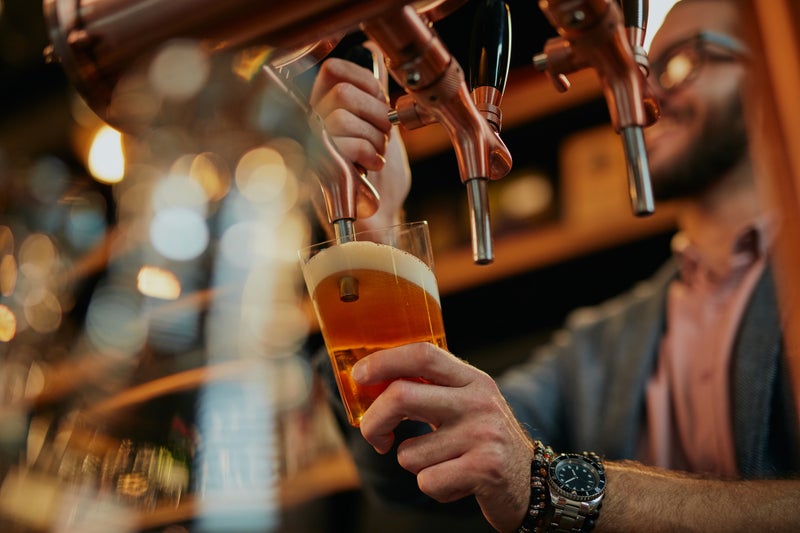The number of financially comfortable people stealing ‘a little something’ here and there seems to be on the up. Helen Coffey asks how and when theft became the new socially acceptable pastime for the upwardly mobile. You wouldn’t steal a car,” the Noughties video piracy PSA infamously pointed out. “You wouldn’t steal a handbag. You wouldn’t steal a television.” Twenty years on, it feels like many of us would steal just about anything else though.
Call me crazy, but I’ve always subscribed to the notion that nicking stuff is, well, wrong, and that the law is something that should largely be abided by in a civilised society. But these days, I increasingly feel like an outlier – a hopelessly naive hick amid a sea of otherwise upstanding citizens who believe they’re inherently entitled to a “five-finger discount” whenever they like. All the evidence seems to suggest that we’ve entered the era of the middle-class shoplifter.
Their first intentional theft was telling: a pain au chocolat. We’re hardly talking Les Mis’s Jean Valjean here, forced into snatching a hunk of bread to fend off starvation. No, what we’re looking at is a person who quite fancies a bougie pick-me-up pastry with their morning coffee, and believes that they deserve to have it for free. “Everything we desire is dangled like a carrot in front of us daily on social media – and we are not willing to wait for it. We are, after all, the impatient generation,” the writer concluded.
Now, before you think I’m here to use this as a stick with which to beat the already much-maligned Gen Z, I promise I’m not – far from it. The truth is, most people I know are middle-class millennials with, at this stage, fairly good jobs, mid-tier salaries and comfortable lifestyles to match. And yet a considerable majority of these people would, and do, quite happily steal things they can easily afford on a regular basis.
They barely seem to think of it as shoplifting. We’re never talking big-ticket, expensive items; just like that anonymous Gen-Zer, these part-time kleptos are merely “forgetting” to scan an item or two on their Waitrose shop. Maybe that almond croissant goes straight in the bag for life without being “beeped” through first. Perhaps an avocado “accidentally” gets put through as a carrot. There’s always plausible deniability baked in – “Whoopsy! Silly old me!” – and always the reliance on their obvious middle-class credentials to protect them from criminal conviction should they get busted by staff. “It was a simple mistake, your honour, of course I didn’t mean to pass off that sourdough as a plain white loaf!”.
I’m no longer all that surprised by the revelation that most of my generally law-abiding friends and acquaintances have developed a very specific blind spot that means they find this behaviour perfectly acceptable. It’s become normalised to the point where I feel like I’m the one who should be justifying my decision to pay for all items in the bagging area. Yet the trend for purloining isn’t confined to groceries. Far from being the preserve of students, the act of swiping a glass from a pub or restaurant is just as prevalent among my mates in their thirties. Only now, there’s not even the excuse of being skint and wanting to drink cheap box wine out of something other than a Sports Direct mug at a house party – the reasoning is simply that they like the design and think it would make a quirky addition to an already extensive glassware collection.
They spend enough on drinks, goes the (to my mind) flimsy justification; in a way, they’ve already paid for that cut-glass tumbler. An image of Bilbo Baggins in Peter Jackson’s Fellowship of the Ring springs to mind, the much-memeified line where the hobbit stubbornly looks down at the One Ring and defiantly mutters, “After all, why not? Why shouldn’t I keep it?” (Because it’s not yours!, I want to shriek hysterically in response.).
The act of swiping a glass from a pub or restaurant is just as prevalent among my mates in their thirties. Then there’s public transport. In recent years, I’ve come to realise just how many of my peers see train fares as “optional”, a nice-to-have extra if you can be bothered or think you might get caught. The rationalisation is frequently that “train fares are too expensive”, without any acknowledgement that perhaps the number of people who refuse to pay for an essential service drives up the price for everyone else.
Nobody likes having to cough up for things. Most of us would, of course, love to have everything we wanted for free. But whenever people explain away their pilfering by banging on about “victimless crimes”, the question I always come back to is this: what would happen if everybody decided that they were somehow exempt from the social contract? What would happen if everyone believed that they were inexplicably entitled to go through life using goods and services without ever paying for them? “Total anarchy”, seems to be the most obvious answer.































